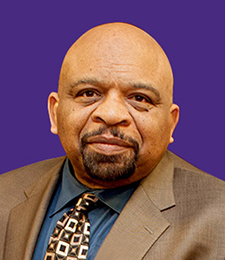The President's Column: It's Time For A New New Deal
April 16, 2019
Workers must demand that labor-backed candidates stand with us.

We working folk would be making a mistake to think like that because our lives, jobs, and families are at stake in the elections. We need to know who stands with us, and who stands against us. There is no point in even talking about the GOP candidate. By now we all know much too much about where Donald Trump stands.
On the other hand, more than a dozen Democratic candidates are already running. Many of them are promoting progressive policies and exciting new positions regarding universal health care, free public college education, livable minimum wages, taxes on the wealthy and corporations, climate change, comprehensive immigration reform, and other vital concerns.
But so far, among the 2020 candidates, we haven’t yet heard any discussion about the rights of working people to organize and defend their families. It is the rare candidate who is ready to walk the walk—or the picket line—and talk the talk. We’ll be looking for those who are ready to do that. We want to hear candidates who use their campaign to assert openly the rights of working people and the value of organizing for better economic and social conditions and democratic principles in the workplace.
Today’s candidates projecting progressive programs often find inspiration in Franklin Delano Roosevelt’s administration of the 1930s. Perhaps the most audacious program being proposed today, the Green New Deal, even takes its name from FDR’s historic New Deal. But we should remember that the 1930s also was the period of the greatest upsurge of American workers. The era saw historic rates of unionization among our manufacturing industries, as well as the founding of the Congress of Industrial Organizations (one half of today’s AFL-CIO) and 1199.
In turn, the muscular labor movement partnered with FDR to give us Social Security, Workers Compensation, unemployment insurance, the 40- hour work week, an end to child labor, and the right to organize, bargain collectively and strike. These great social advances had until then been considered impractical, naïve and impossible.
But so far, among the 2020 candidates, we haven’t yet heard any discussion about the rights of working people to organize and defend their families.
But over the past decades, under administrations of both parties, federal and state legislatures have piece-by-piece dismantled workers’ rights. Their work was fueled by millions of dollars from chambers of commerce, Wall Street, big pharma, global retail outfits like Wal-Mart and Amazon, the oil, gas and tech industries and industrial giants like Koch Industries. (The passivity of many unions and their failure to educate, organize and defend their members also took its toll.)
The unending attack has crippled workers’ rights to some degree in every state of the union. The labor movement today is in a weakened state, with only one in 10 workers in our country a union member. Forty years ago, it was one in three.
Only by removing the barriers to union growth will workers have a fighting chance. In the first place, this means leveling the playing field in the workplace, which begs the question: where do the 2020 candidates stand? A true pro-worker administration and Congress would, as a start, revise labor law and strengthen the departments and offices charged with protecting workers’ health and rights. Additionally, employers would be required to recognize a union if a majority of workers in a workplace consent to representation; furnish contact information for every employee to the union; allow the union to present their case at the workplace in case of employer - employee disputes; allow workers who are discriminated against for union activity to sue for damages; allow unions to seek damages for costs and losses incurred when employers commit unfair labor practices; and require arbitration if six months after a union has been certified in the workplace no collective bargaining agreement can be reached.
Eight decades ago FDR embraced labor law and pressed the U.S. Congress to respect workers. He did so because workers demanded it—in the streets, on their jobs, at the ballot box. Much has changed since then, but some things haven’t. In the 2020 elections and beyond, we need political leaders who are advocates and fighters on behalf of workers. And we need to organize and mobilize ourselves to demand that they do so. Best to get ready now.
1199 Magazine | March / April 2019

